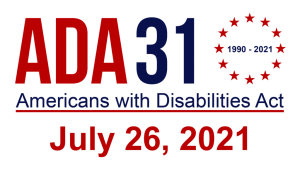 Title I of the Americans with Disabilities Act prohibits discrimination against people with disabilities regarding employment. This simply means that individuals with disabilities must be given equal access to the job application and hiring processes, and must also be given the same consideration and benefits as others when they have obtained the job.
Title I of the Americans with Disabilities Act prohibits discrimination against people with disabilities regarding employment. This simply means that individuals with disabilities must be given equal access to the job application and hiring processes, and must also be given the same consideration and benefits as others when they have obtained the job.
Thanks to the Americans with Disabilities Act (ADA), people with disabilities have equal access to the independence and self-worth afforded by employment.
To achieve this equality, employers sometimes need to provide reasonable accommodations to employees with different abilities and needs. Reasonable accommodations are methods and objects that enable these employees to do their jobs and do them well.
Employees who need a screen reader to access a computer are fundamentally no different than those who need a ladder to reach a book on a high shelf – they can only perform their duties with the proper tools.
A study conducted by the Job Accommodation Network (JAN), found that employers and employees – with and without disabilities – both benefit from workplace accommodations.
Employers:
- retain valuable employees,
- increase productivity, and
- improve morale and profits.
Employees:
- report improved interactions with co-workers and customers,
- feel safer at work, and
- take fewer sick days.